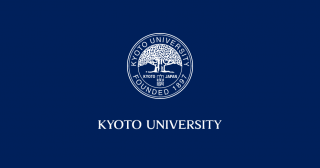An 11-day summer school program, "2015 Kyoto Study Program for Kasetsart University", took place in Kyoto from 26 May through 5 June. Organized by Kyoto University's Human Security Development Educational Unit in collaboration with Kasetsart University, Thailand, the summer school precedes the international course "Changing Southeast Asia Environment, Industry and Society", which will be held in Thailand from 31 August through 12 September by the Faculty of Agriculture in collaboration with the Organization for the Promotion of International Relations (OPIR). For the duration of the summer school, the 13 participants from Kasetsart University were enrolled in Kyoto University's Faculty of Agriculture as "short-term exchange students".
The participants attended a lecture by Professor Motoki Akitsu of the Graduate School of Agriculture (GSA) entitled "Agri-Food World in Japan: Present and Future", and took part in field trips led by Prof Eiji Nawata, Prof Mamoru Kanzaki, Prof Tatsuhiko Shiraiwa, and Prof Tooru Matoh from the Faculty/Graduate School of Agriculture, and Dr Hiromi Tobina, a lecturer in the Human Security Development Educational Unit. Places visited included two experimental farms managed by GSA; Fujita Forestry; Kayabuki-no-Sato Kitamura ("Kitamura, the thatched-roof village"); a leading rice grower in Hikone City, Shiga Prefecture; NPO Musehi Munoyaku Saibai Chosa Kenkyu Kai (Muhiken), a non-profit organization researching and promoting chemical- and fertilizer-free farming; Shoutoku Brewery Co Ltd.; an organic farm and tomato and kamo-nasu (Kyoto's traditional eggplant) farms in Kyoto City; and Suntory Kyoto Brewery. In addition to gaining insight into Japanese agriculture, forestry, and environmental issues through these experiences, the participants also visited Lake Biwa Museum to learn about the area's ecosystems and eco-preservation efforts.
The program also offered opportunities for cultural experiences; after attending a lecture on Kyoto culture given by Associate Professor Sikiko Yukawa of the International Center, the participants not only toured local world heritage sites and Nishiki Ichiba, a traditional retail market, but also experienced yuzen dyeing and kimono wearing.
Throughout the summer school, the students worked in four groups, engaging in discussions and preparing the presentations to be delivered on the final day.
Some of the activities had them working with Kyoto University students from across a range of disciplines who either had studied at Kasetsart University or were planning to take part in the August-September international course, resulting in the development of international friendships.

Attending a lecture at Lake Biwa Museum

At a GSA experimental farm

In front of Kiyomizu Temple

Yuzen dyeing experience

At the Takatsuki experimental farm

Group presentation





